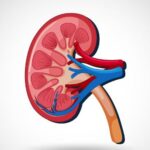Tonsillitis can affect people of all ages. The disease is especially prevalent in winter and rainy days. Frequent sore throat, fever, reluctance to eat are some of the symptoms of tonsillitis. Many patients stop eating at this time because they cannot swallow food properly. This results in dehydration and lack of calories.
What are tonsils?
Tonsils are a part of our body’s immune system and they are located in four groups inside our mouth. Their names are lingual, palatine, tubal, and adenoid. Inflammation of any one of these tonsils is called tonsillitis.
How tonsil works
Its main function is to create immunity before birth. If there is a problem with tonsillitis, the patient suffers from frequent colds and the tonsils and adenoids become enlarged.
Healthy people who do not have frequent colds or tonsillitis; As they get older, the tonsils gradually shrink and at one point this organ becomes dysfunctional.
Symptoms of tonsillitis
1. Frequent sore throat and fever. There is usually fever with a sore throat, which can often range from 103 to 104 degrees.
The child stops eating and drinking due to a sore throat. Many times dehydration and calorie deficiency can occur in the baby’s body.
2. Frequent tonsillitis causes enlargement and obstructs the respiratory tract and food supply.
3. Many start snoring as soon as they fall asleep. Nasal congestion tends to increase gradually. The respiratory tract becomes completely small when completely closed; Then stop breathing completely. At this stage, it is a serious threat to the body.
4. The level of oxygen in the body decreases rapidly and in a few seconds, the body will reach a dangerous position. At this time the life-saving processes (remix mechanisms) inside the body become active.
5. When the adenoid gland is large, it suffers from frequent colds, coughs, and colds and does not want to get rid of the cold easily. In some cases suffers from shortness of breath and cough at night.
. Inflammation of the throat or nose goes into the ear. This results in frequent pain in the ear and less hearing in the ear. Many times in addition to pain, pus or water may accumulate in the ear.
. Frequent infections inside the ear or prolonged accumulation of pus in the ear can damage the eardrums and at some point the eardrum becomes completely perforated. In most cases, ear infections and hearing problems begin.
. After rheumatic fever due to frequent infections in the tonsils. This disease can cause severe damage to the heart and kidneys. Rheumatoid arthritis, which is caused by an infection in the tonsils, is one of the leading causes of heart failure or kidney failure at an early age.



















